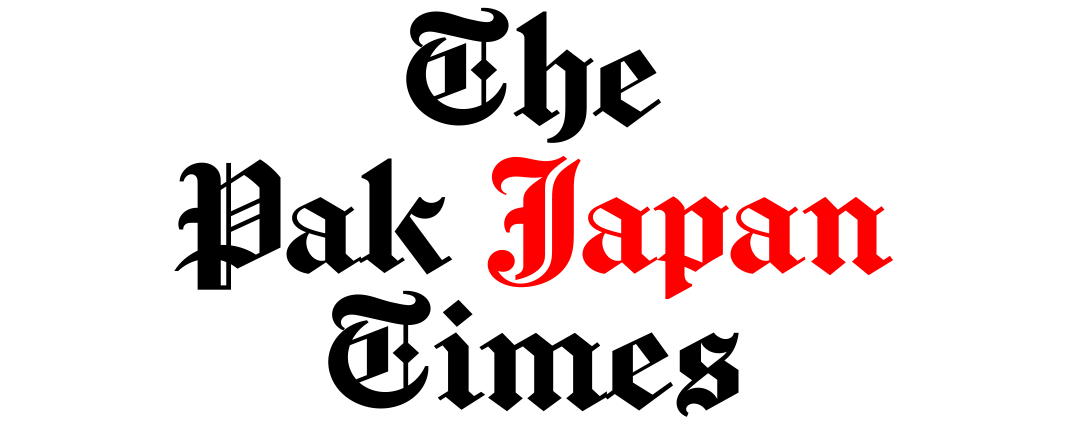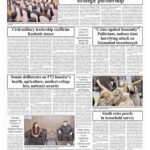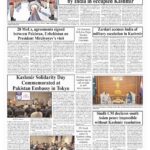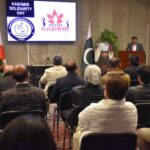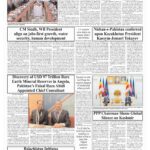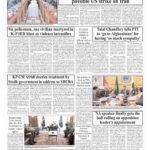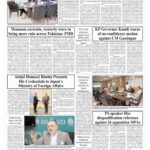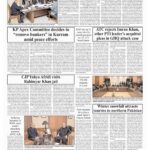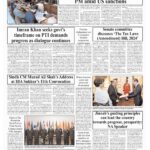By. Muhammad Irfan Siddiqui
Tokyo
During the heightened tensions of the Iran-Israel conflict, Deputy Prime Minister and Foreign Minister of Pakistan, Mr. Ishaq Dar, emerged as a key diplomatic figure, working tirelessly behind the scenes to prevent the regional crisis from escalating further and to safeguard Pakistan’s national interests.
As the war between Iran and Israel sent shockwaves across the Middle East and the broader international community, Mr. Dar took swift and calculated diplomatic steps. Recognizing the grave implications such a war could have for Pakistan and the Muslim world at large, he mobilized Pakistan’s foreign office to open urgent communication channels with both regional allies and global powers.
Mr. Dar’s first and foremost priority was conflict de-escalation. Leveraging Pakistan’s traditionally cordial ties with Iran and its balanced diplomatic stance in the Middle East, he initiated backdoor diplomacy and participated in several high-level virtual discussions with foreign ministers from key OIC (Organization of Islamic Cooperation) countries, including Turkey, Saudi Arabia, and Qatar. His message remained consistent: “War is not a solution; dialogue is the only path to lasting peace.”
Simultaneously, Mr. Dar ensured that Pakistan’s position remained neutral, principled, and peace-oriented, avoiding alignment with any military bloc, thereby allowing Pakistan to play the role of a trusted intermediary. His strategy was praised by several international analysts who noted that Islamabad could serve as a bridge between Iran and the wider Muslim world, especially given Pakistan’s nuclear status and regional significance.
In a series of official statements and diplomatic correspondences, Ishaq Dar highlighted the humanitarian cost of war, calling for immediate ceasefire and the protection of civilian lives. He also reached out to the United Nations and urged them to take immediate notice and push for diplomatic resolution. Moreover, under his guidance, Pakistan offered to facilitate peace talks in a neutral location, signaling the country’s willingness to serve as a host for dialogue.
Another significant achievement under Mr. Dar’s leadership was the protection of Pakistani nationals in the affected zones. He directed embassies and missions in neighboring countries to remain on high alert and provided support to those seeking to return to Pakistan safely. Emergency hotlines and travel arrangements were activated, showcasing his proactive crisis management capabilities.

Furthermore, Mr. Dar used the crisis as an opportunity to push for greater regional economic cooperation. He emphasized that regional peace was essential for trade, energy connectivity, and development—issues vital for Pakistan’s economic recovery. His vision resonated with several regional stakeholders who appreciated Pakistan’s emphasis on diplomacy over conflict.
In conclusion, Deputy Prime Minister Ishaq Dar’s role during the Iran-Israel conflict highlighted his statesmanship, experience, and diplomatic prudence. By balancing assertive diplomacy with strategic neutrality, he not only protected Pakistan’s interests but also elevated its standing as a peace-seeking nation on the global stage. His leadership during this tense period has been widely commended and has reinforced Pakistan’s image as a responsible actor in regional affairs.
